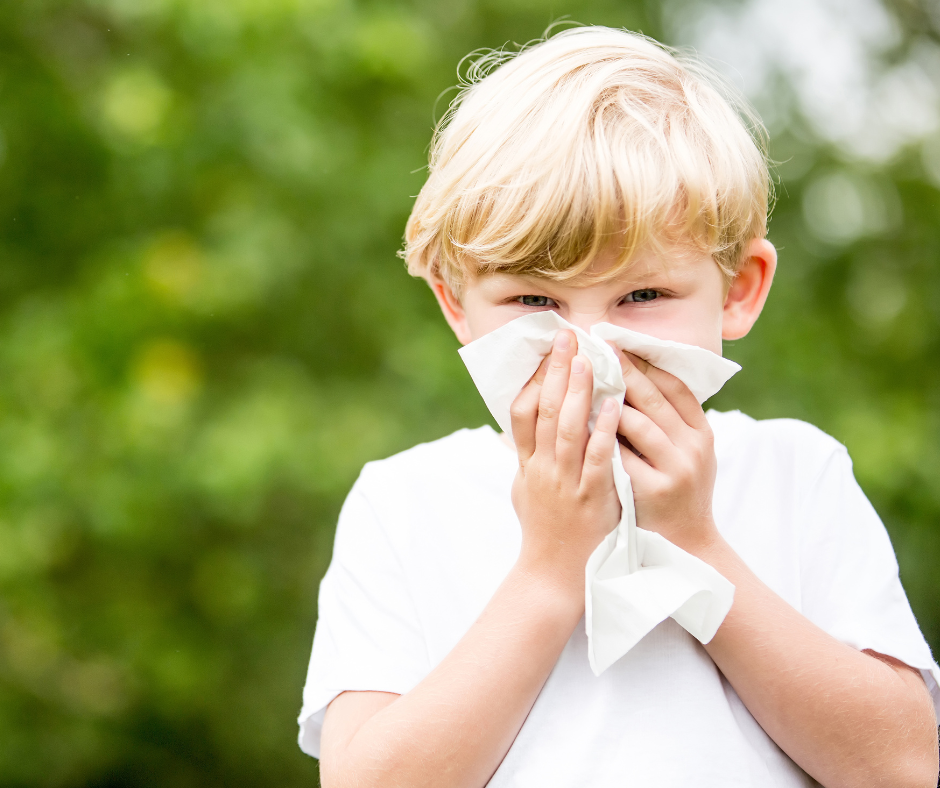April brings the fresh bloom of spring, but for many, it also marks the onset of allergy season. For infants, who are particularly sensitive, managing allergies is crucial to ensure their comfort and health. Here's how parents can prepare and care for babies with allergies, including utilizing baby monitors to observe symptoms from a distance.
As April heralds the onset of spring, it also signals the start of allergy season, a time that can be particularly challenging for infants with sensitivities. Parents can take several steps to ensure their babies are comfortable and protected from allergens, and one valuable tool in this effort is the use of advanced baby monitors.
Understanding Baby Allergies
Allergies in babies often present as skin rashes, respiratory symptoms, or digestive problems. Recognizing these signs early is crucial, as common allergens like pollen, pet dander, and dust mites can affect infants more severely. Ensuring you know what symptoms to look for helps in managing and preventing discomfort effectively.
Creating an Allergy-Safe Environment
To minimize your baby's allergy risks, maintaining clean air in your home is essential. Using an air purifier in the nursery helps filter out pollen and dust, while keeping pets out of the baby's sleeping area can reduce exposure to pet dander. Opting for hypoallergenic bedding can also guard against irritants like dust mites.
Dietary Considerations
If your baby is at the stage of eating solids, being cautious about introducing new foods is key. Each new food should be given individually with a gap to watch for any allergic reactions. Consulting with a pediatrician before introducing new foods is always advisable to ensure safety.
Monitoring for Allergies with Baby Monitors
Advanced baby monitors are particularly useful for parents managing a child’s allergies. These devices can monitor the baby’s breathing and alert parents to any irregularities, particularly important for those with respiratory allergies. Video monitors also allow parents to watch for any signs of distress or discomfort that could indicate an allergic reaction, all without entering the room and potentially waking the baby.
Additionally, some monitors can track environmental conditions like temperature and humidity, which can be adjusted to keep the nursery comfortable and less hospitable to allergens.
Preparing for Outdoors
Taking precautions during outdoor activities is essential during allergy season. It is best to avoid going out when pollen levels are highest, usually during midday and afternoon. Dressing your baby in protective clothing and washing off pollen from their skin and clothes immediately after outdoor activities will help minimize allergic reactions.
Educating Caregivers
Make sure all caregivers, including family and daycare providers, are informed about your child's allergies and understand how to handle any allergic reactions appropriately.
Regular Check-ups
Scheduling regular visits with a pediatrician will ensure that your baby’s health is monitored professionally, and any signs of allergies are managed promptly. Your doctor can also provide personalized advice to help keep your child safe and comfortable throughout allergy season.
By taking these steps, parents can effectively manage their baby's allergies and ensure they enjoy a comfortable, happy spring. With the support of technology like baby monitors, parents can also gain peace of mind, knowing they have the tools to keep a close eye on their child’s well-being from afar.

